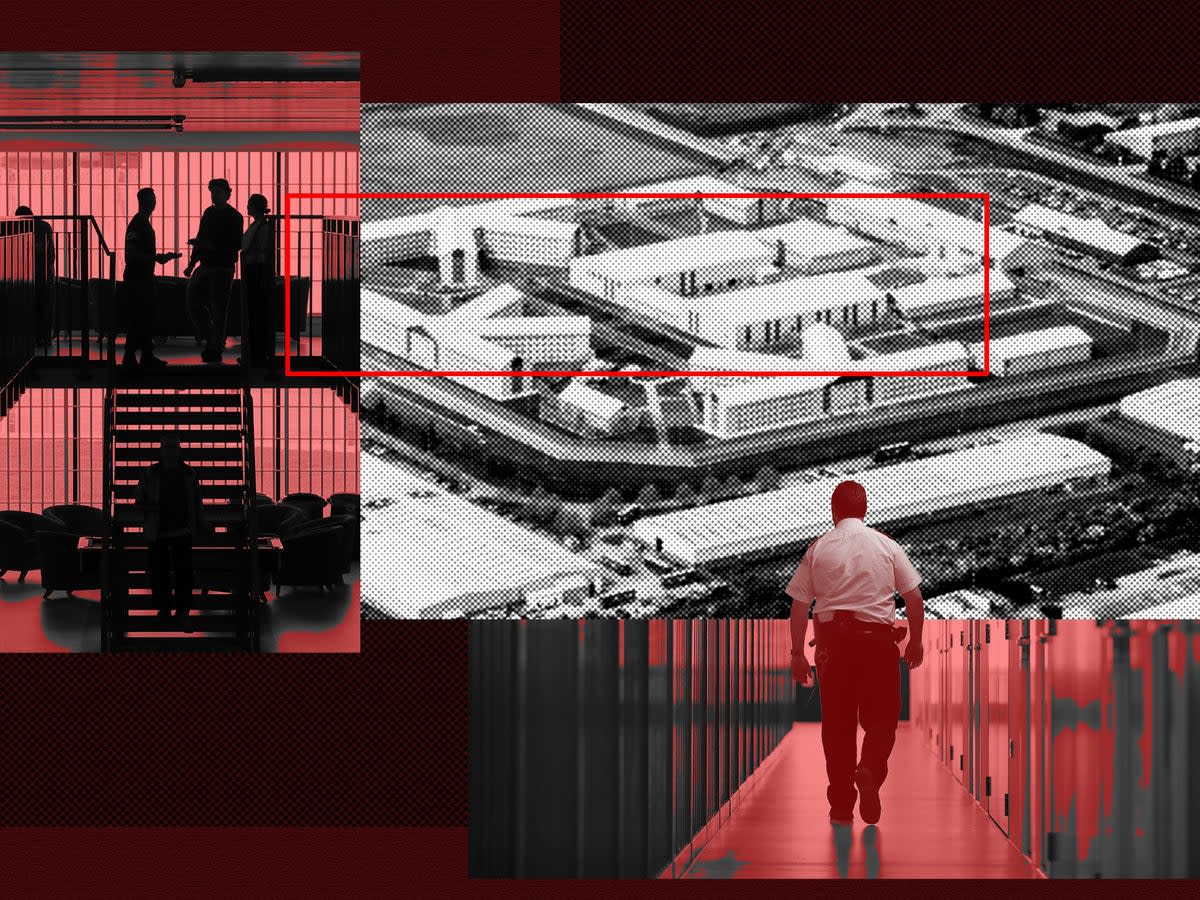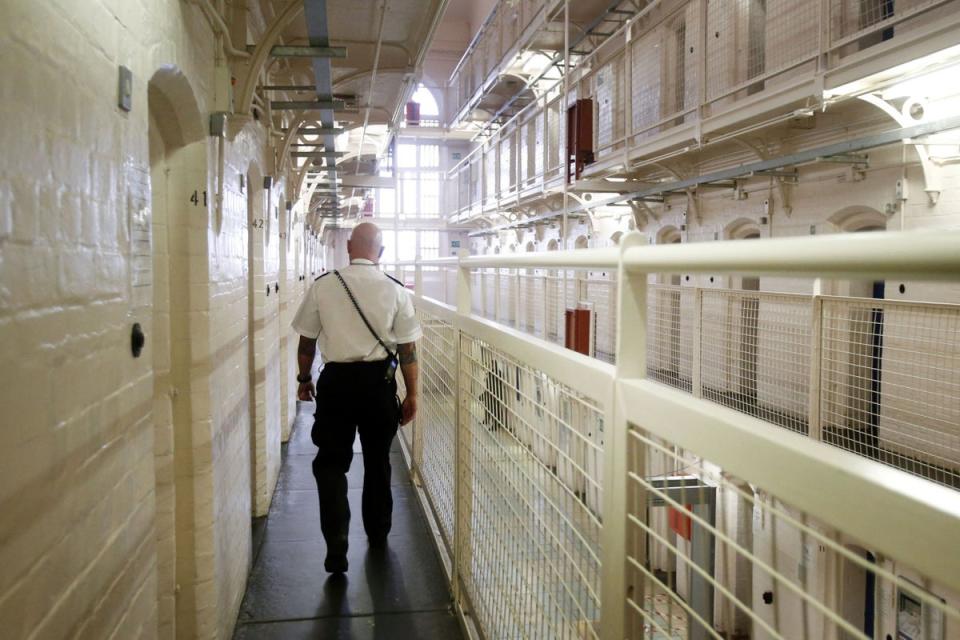Jails face explosion of violence due to shortage of ‘Tornado squad’ prison riot officers

The number of prison officers trained to deal with riots as part of so-called Tornado squads has plummeted by a third, The Independent can reveal, as new figures lay bare the staffing crisis blighting UK jails.
The officers, who are part of 50-strong groups armed with batons and shields, saw a surge in deployment in prisons last year as the beleaguered system battles a surge in violence and disorder amid a staffing crisis and overcrowding.
Their depletion coincides with a spike in violence in prisons; despite demand for their specialist skills at its highest in years, ministers have admitted nearly 700 fewer of these prison officers are available than in 2018, when 2,310 were on hand to tackle the most serious prison disturbances.
The “concerning” figures, triggered by a surge in such officers quitting the service, have prompted fears that jails are becoming increasingly vulnerable to violence, instability and control by gangs. Justice secretary Alex Chalk is said to have warned Rishi Sunak that the overcrowding crisis could soon trigger a wave of riots.
Tornado squads were deployed 13 times in prisons last year alone, more than any year since at least 2018 and up from a mid-Covid low of just four times in 2021, a series of parliamentary questions by Labour has uncovered.
More than half of Tornado squad callouts over the past two years were to young offender institutions and women’s prisons, minister Edward Argar told his Labour counterpart Ruth Cadbury.

It comes as figures show assaults on prisoners and staff soared by 20 per cent in the year to September, with more than 25,000 incidents in a single year. Violence in the women’s estate skyrocketed to an all-time high, overtaking men’s prisons for the first time.
Shadow justice secretary Shabana Mahmood told The Independent: “No wonder these new figures show a huge decrease in the number of specialist officers who can be deployed to deal with dangerous and difficult situations across our prison estate – including riots.
“This is yet another sign of the scale of the crisis in our prisons, and the failure by the government to take this crisis seriously.”
In addition to Tornado squads, which comprise local officers who volunteer to be deployed to tackle dangerous situations across the prison estate, a separate specialist group – often described as the prison system’s SAS – was called out more than twice a day last year.
Routinely armed with pepper spray, smoke bombs and batons, and wearing flameproof uniforms, anti-stab protection vests and armoured gloves, National Tactical Response Group units were deployed 794 times in 2023 – an increase of nearly 40 per cent on the previous year.
While Mr Argar told parliament that the government has no minimum staffing requirement for Tornado squads, unions suggest a contingency of at least 2,100 volunteers is the official recommendation – well above the 1,592 available in November, which rose slightly to 1,620 last month.
Warning that prisons are operating under “extreme pressure” with a current “concentration of higher risk, more violent prisoners” amid emergency measures to release lower-risk offenders early, Tom Wheatley, head of the Prison Governors Association, said: “This makes it more likely that there will be disorder.

“Despite [the Prison Service] training more new Tornado officers than ever, retention rates are alarmingly low. This is of concern to prison governors, as the ability to swiftly restore order and control in our prisons is essential to maintaining prison capacity and the safety of staff, prisoners and the public.”
Expressing “alarm but not surprise” at the drop in Tornado volunteers, the Prison Officers Association warned it could not recall a time where there was a shortage of interest in carrying out Tornado roles –and said the 1,592 officers available in November could well be an all-time low.
“[Officers] don’t get any real additional payments for putting themselves on the line. There’s no real difference between rate of pay for Tornado duty and bed watch,” the union’s chief Steve Gillan told The Independent, adding: “They’ve taken them for granted, and now it’s come home to roost.”
Labelling the shortage “a wake-up call for everyone” which “could have a knock-on effect” for staff and prisoner safety, Mr Gillan warned: “The last thing you want is not having enough trained personnel to deal with incidents throughout the service.”
“Officers are nearly on their knees, morale is rock bottom,” he added. “The prison service is just in crisis on everything – from overcrowding to assaults rising, to Tornado incidents on the rise. Officers are stretched to the limit.”
The justice secretary announced drastic measures this week to release prisoners up to 60 days early after prisons came dangerously close to running out of space, and is said to have warned Downing Street that the crisis could soon trigger riots.
Mr Gillan added: “There’s no denying there can be a risk of disorder, and that’s a real concern because that means potentially more prisons being put out of action,” he said, adding: “We can’t afford that at the moment. We need an adult conversation in this country about how many people we lock up.
“When the Strangeways riot happened in 1990, there were 43,000 prisoners then and they were talking about overcrowding then as one of the causes. So it appears we’ve learnt nothing – because 40 years later, we’ve now got 88,000 prisoners.”
Echoing calls by HM chief prisons inspector Charlie Taylor to this publication in December, he urged all political parties to stop posturing and said: “We need an adult conversation in this country about how many people we’re going to continue to lock up”, reiterating demands for a “root and branch” royal commission into the state of the justice system.
A Prison Service spokesperson said: “The safety of our staff and prisoners is our priority which is why we’re bolstering our Tornado teams by training more than 800 staff this year to deal with serious incidents. This is on top of our £100m investment into tough security measures to clamp down on violence and improve safety.”


